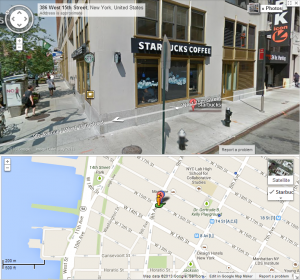From 23-27 Sept 2013 at Design Akademie Berlin during Social Media Week Berlin, I will present an interactive installation How Social Are We? which catalyzes a simple conversation:
If…and how could…a (re)balance of privacy within social media occur. How social is “social media” when cultural differences around the world differ greatly in their desire for privacy and identity protection.
I, born an American, have a different perspective on privacy than the culture in Deutschland. Germans are far more concerned with their privacy than Americans. This is of great interest to me in both a historical context and the 2013 context of NSA Prism and the Snowden leaks.
How Social Are We? will dig deeper into the amount of data available about individuals and challenge the viewer…the participant…to consider what is important to them. The installation will elicit responses and emotions from those that view or more deeply participate in the installation. These responses, and the emotions that drive them, are core to the sovereign nations/cultures and affect all involved including individuals, intermediaries, data processing firms, authors/content providers, and all others in the social media ecosystem. I believe both countries have good intentions yet poor execution within their governments and businesses.

My invitation is for you to participate in the installation by being physically interactive with it or using your mobile phone. It will be watching you. Social media is watching you. There will be no humans performing; no secret operator. This is the scenario of today’s social media infrastructure, big data, and privacy. It is all computers…data…automated numbers and math. It will aggregate data across sources including those on the Internet and locally near the installation: social networking services, microblogging services, search engines, music databases, image/video hosting services, mobile phones, sensors, and cameras.
As you participate, some topics to consider:
- How social is this in your culture?
- How does another culture feel about this?
- How do I participate in a social media ecosystem across cultures when privacy and identity have different importance.
- What responsibility should be owned by individuals, small groups, providers of infrastructure, or government?
 While creating my 2011 exhibition From A to B and That Between at HKW, I discovered how easy it was to track individuals with Twitter. In one case, I could track a man’s normal weekday pattern of getting coffee at a particular Manhattan Starbucks in the morning. I was amazed. My German friends were horrified. This…was interesting.
While creating my 2011 exhibition From A to B and That Between at HKW, I discovered how easy it was to track individuals with Twitter. In one case, I could track a man’s normal weekday pattern of getting coffee at a particular Manhattan Starbucks in the morning. I was amazed. My German friends were horrified. This…was interesting.
I have now lived in Berlin for three years. Ten years ago, I was the privacy guru for my development teams at Microsoft. This privacy and data mining knowledge has combined with my Berlin living experience allowing me to more easily identify cultural differences on this topic.
I talk with my German friends about their views on privacy and they educate me on their culture’s history of the last 100 years which included privacy difficulties with their government during the eras of the Nazi and later the Stasi. Yet, as I view it today, it continues with every resident of Deutschland being forced to register with the government using an Anmeldebestätigung. Few Germans show concern with this government tracking (the very thing that should be historically feared). Yet, those same Germans show great concern with a private businesses having their home address (which historically was not a problem).
The USA is no more consistent. Residents there typically engage in the implied value proposition of: What private information do I release to get something for free? A good example of this is the use of Facebook. Facebook is generally a free service yet expensive to operate. To receive this free service, a customer must release some private information which then Facebook can monetize through advertising or information brokering. Americans will complain about ads being targeted to them yet they won’t stop using the service. This is a conflict in personal actions and accountability; a lack of self-control.
These differences across cultures and conflicts within are only a tiny slice of the topic of rebalancing privacy in social media. I invite everyone to consider these while participating in my installation How Social Are We?.
Materials:
- Custom software written using Cycling 74 Max 6 and Microsoft Visual C++ 2012
- Microsoft Kinect sensor
- Internet connectivity and freely available data
- Color projector
- Projection screen
